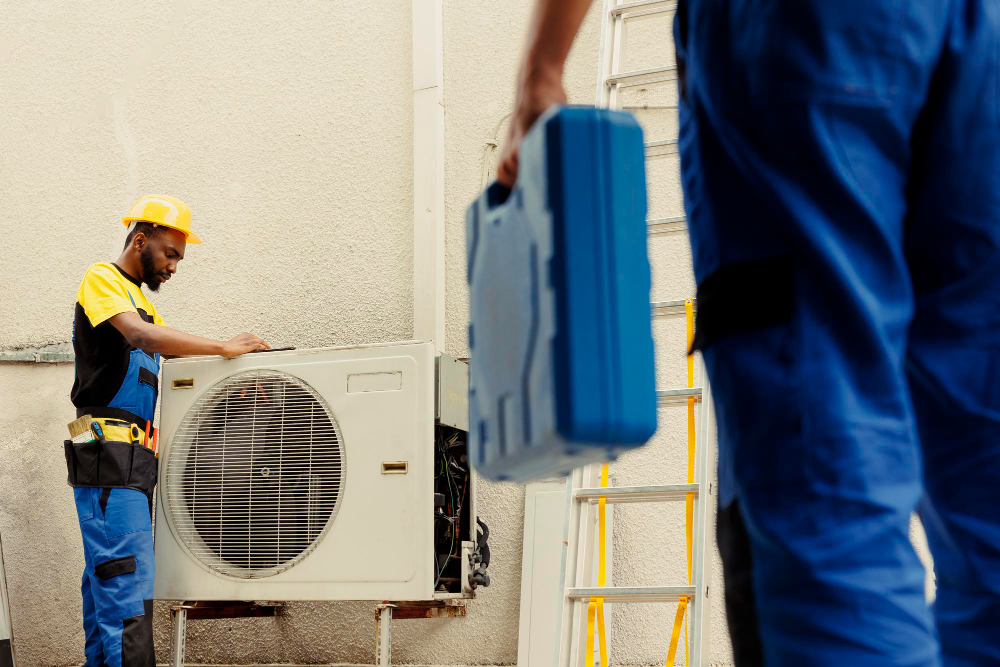10 Ways to Keep Your HVAC Running Smoothly

Your HVAC system is the unsung hero of your home, working tirelessly behind the scenes to keep you comfortable year-round. From the sweltering heat of summer to the chilly winter nights, your HVAC system is crucial for maintaining a pleasant indoor environment. However, to ensure it runs smoothly and efficiently, regular maintenance is key. In this blog post, we’ll explore ten essential tips to keep your HVAC system operating at its best.
1. Regularly Change the Air Filters
Changing your air filters is one of the simplest yet most effective ways to maintain your HVAC system. Dirty filters can restrict airflow, making your system work harder to circulate air. This added strain can lead to higher energy bills and even cause damage over time. Aim to replace your air filters every 1-3 months, depending on usage and the type of filter you use.
2. Schedule Annual Professional Inspections
Even if your HVAC system appears to be running smoothly, it's important to have a professional inspect it annually. A qualified technician can identify potential issues before they become major problems, ensuring your system remains in good working order. During an inspection, the technician will clean and lubricate moving parts, check for leaks, and test the system's overall efficiency.
3. Keep the Outdoor Unit Clean
The outdoor unit of your HVAC system, also known as the condenser, is exposed to the elements and can accumulate dirt, leaves, and debris. This buildup can obstruct airflow and reduce the unit's efficiency. Regularly clean the area around the condenser, removing any debris and trimming back vegetation to ensure proper airflow. Additionally, gently hose down the unit to remove dirt and grime.
4. Check and Seal Ductwork
Leaky ductwork can significantly impact your HVAC system's efficiency, causing heated or cooled air to escape before it reaches its destination. Inspect your ductwork for any visible leaks or gaps, and seal them with duct tape or mastic sealant. Properly sealed ducts will improve your system's performance and reduce energy waste.
5. Install a Programmable Thermostat
A programmable thermostat allows you to set specific temperature schedules, ensuring your HVAC system operates only when needed. This can lead to significant energy savings and reduce wear and tear on your system. Modern thermostats offer advanced features such as remote control via smartphone apps and learning capabilities that adapt to your preferences over time.
6. Ensure Proper Insulation
Good insulation is essential for maintaining a consistent indoor temperature and reducing the workload on your HVAC system. Check your home's insulation, particularly in the attic and walls, and add more if necessary. Proper insulation will help keep your home cooler in the summer and warmer in the winter, allowing your HVAC system to run more efficiently.
7. Check the Refrigerant Levels
Refrigerant is the lifeblood of your HVAC system, responsible for absorbing and releasing heat to provide cooling. Low refrigerant levels can indicate a leak or other issue, leading to reduced efficiency and potential damage to the system. Have a professional check your refrigerant levels during annual inspections and address any leaks promptly.
8. Clean the Evaporator and Condenser Coils
The evaporator and condenser coils in your HVAC system play a crucial role in the heat exchange process. Over time, these coils can accumulate dirt and debris, reducing their efficiency. Regularly clean the coils to ensure optimal performance. This is typically a task best left to professionals, as it requires specialized equipment and knowledge.
9. Keep Vents and Registers Clear
Blocked vents and registers can disrupt airflow and strain your HVAC system. Ensure that all vents and registers are free from obstructions such as furniture, curtains, and rugs. Additionally, periodically clean the vents to remove dust and debris that can accumulate over time.
10. Replace Old HVAC Systems
No matter how well you maintain your HVAC system, it will eventually reach the end of its lifespan. If your system is over 10-15 years old and experiencing frequent issues, it may be time to consider a replacement. Modern HVAC systems are more energy-efficient and offer advanced features that can improve your home's comfort and reduce energy costs.
Conclusion
Maintaining your HVAC system is essential for keeping it running smoothly and efficiently. By following these ten tips, you can extend the lifespan of your system, reduce energy costs, and ensure a comfortable indoor environment year-round. If you're looking for HVAC supplies in Central Florida, contact Discount Air Supply today for more information. Our team of experts is here to help you find the best products and solutions for your HVAC needs.
Investing in regular maintenance and high-quality HVAC supplies will pay off in the long run, keeping your system in top condition and providing you with peace of mind. Don't wait until a minor issue becomes a major problem – start implementing these tips today and enjoy the benefits of a well-maintained HVAC system.
For more information on HVAC supplies and expert advice, visit our website or give us a call. We're here to support you every step of the way.
Call to Action
Ready to take the next step? Contact Discount Air Supply today for all your HVAC needs in Central Florida. Our knowledgeable team is ready to assist you in finding the right supplies to keep your system running smoothly. Don't miss out on exclusive deals and expert advice – reach out to us now and experience the difference!
By staying proactive and prioritizing maintenance, you'll ensure that your HVAC system remains reliable and efficient for years to come. Remember, a little effort goes a long way in keeping your home comfortable and your energy bills in check. Happy HVAC maintenance!